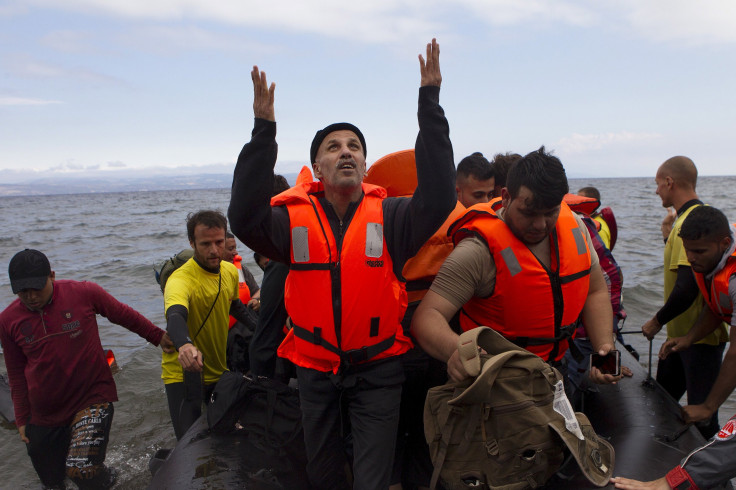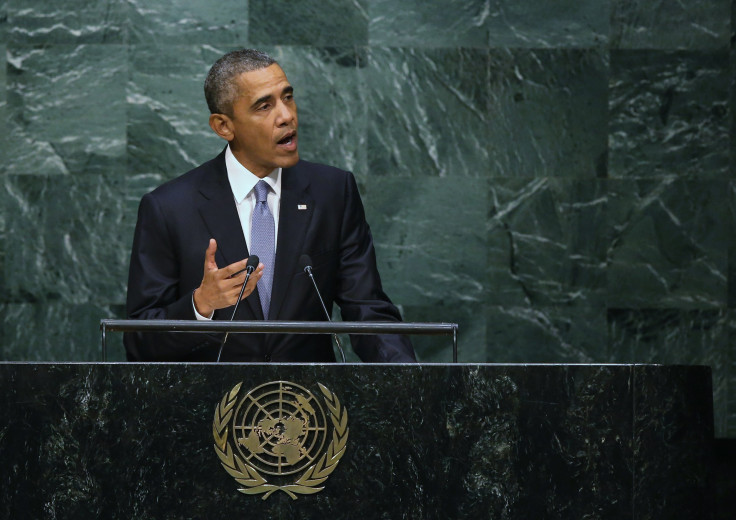Syrian Refugees US Obama Policy 2015: Increase The Asylum Number, Civil Rights Groups Ask In Letter To President

President Barack Obama should show Americans are willing to take the lead in the global response to the Syrian refugee crisis, a group of U.S. civil rights organizations said Tuesday. The leaders from American Muslim, African-American and Jewish-American advocacy organizations, among several other interest groups, told the president that Syria’s neighbors and several European nations had “captured the moral high ground” by collectively agreeing to resettle several million Syrian migrants, who fled their homes amid a civil uprising against President Bashar Assad and Islamic State group violence that has claimed more than 220,000 lives.
The U.S. should agree to take in more refugees sooner and pressure other countries to do the same, the groups said. “The United States has historically taken in the largest share of refugees eligible for resettlement,” the groups wrote in a letter to Obama dated Sept. 25. “We need to take further steps in this instance, and lead by example and encourage additional countries to step in as well.”
After delivering a speech Monday on the need for a global solution to the Syrian refugee crisis at the United Nations, Obama announced via Twitter that the U.S. would take in 100,000 refugees from Syria and other countries per year for the next two years. That number is a significant increase from the initial 10,000 that Obama promised earlier this month.

The group of civil rights organizations, which includes the NAACP, the Anti-Defamation League, and the American-Arab Anti-Discrimination Committee, also wrote to Obama about the economic benefits of taking in refugees who “have a strong commitment to pursuing education and hard work.”
The letter marks the first time the organizations have spoken out about the Syrian refugee crisis, as most of them primarily work on domestic policy issues, said Wade Henderson, president and CEO of the Leadership Conference on Civil and Human Rights.
Here is the full text of the letter to Obama:
Re: Syrian Refugee Crisis
Dear President Obama:
On behalf of the undersigned organizations, we urge you to take bold, exemplary action to address an ongoing refugee crisis that has evolved into one of the largest we have seen in recent history. The heartbreaking image of three-year-old Aylan Kurdi lying on a Turkish beach has quickly come to symbolize the countless numbers of Syrians who are living in the midst of a brutal civil war that has no clear end in sight. As the world continues to respond to that war, we have a moral imperative and a tradition to uphold with respect to its civilian victims, and we have an example we urgently need to set before the rest of the world.
We were encouraged by the recent news that you will increase the overall number of refugee admissions in the coming years. The goals you have set would represent a good step forward, particularly with respect to the troubling low number – approximately 1,600 – of Syrian refugees who have been admitted to the United States since 2011.
We strongly urge you to go far beyond the goals you recently announced. Numerous refugee advocacy organizations, both here and abroad, have urgently called for a significantly higher number of admissions to address the ongoing crisis and to pressure other countries to do the same (for example, Refugee Council USA, to which some of our member organizations belong, has called for the United States to resettle 100,000 Syrian refugees in 2016). Several Middle Eastern and European countries, much smaller than ours, have recently captured the moral high ground. Syria’s neighbors have demonstrated their willingness to bear more than their share of the burden of caring for Syrian refugees; for example, Lebanon has taken in one million refugees, Turkey has taken in two million, and Jordan has taken in half a million. Germany, providing important leadership to the European Union, has pledged to take in 800,000 refugees.
At the same time, we stand with you in the face of unconscionable political attacks upon these refugees and their religious and ethnic background, which are being thrown about as the next election cycle draws nearer and as some candidates say whatever they feel must be said to appeal to their base voters. It is incredibly easy for people to attack the legitimacy of refugees, when they themselves have the good fortune of living in a country they will never have to flee. But our national policies must be better than the rhetoric we hear from some corners.
The truth is that refugees have long proven to be a tremendous asset to our economy and our national well-being. Despite the trauma they have faced in their home countries, refugees who arrive in our country have a strong reputation of valuing education, hard work, and building our economy. Moreover, refugees go through more security vetting than immigrants or visitors who come through any other channel. In short, our kindness to refugees has long been proven to generate returns that go beyond the ability to look at our collective selves in the mirror.
We realize there are significant logistical challenges to the increased admission of refugees, including not only the immediate vetting and relocation, but also long-term integration and the transition to citizenship. We remain fully committed to working with you on long-term comprehensive immigration reform, including the resources necessary to help transform refugees into productive, proud Americans.
Again, we must remain mindful of our moral imperative to help respond to this crisis, and to set a benchmark for the rest of the world moving forward. We appreciate the efforts you have undertaken so far, and we look forward to seeing them continue.
© Copyright IBTimes 2025. All rights reserved.






















